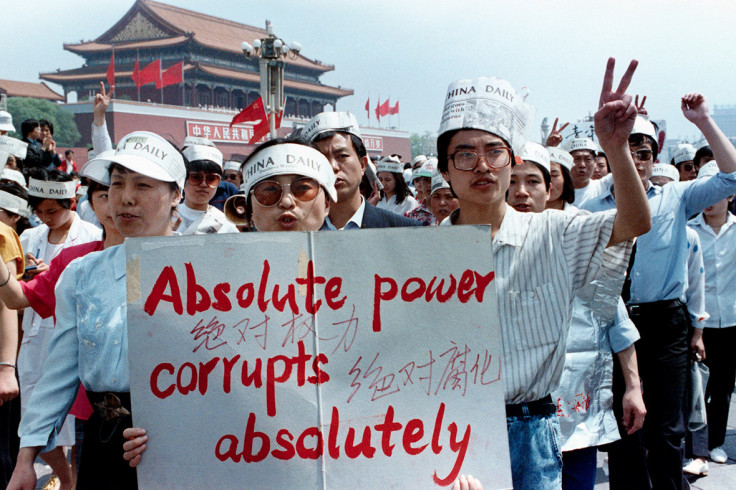Tiananmen Square 25th Anniversary: Xu Qinxian, The Man Who Stood Up to China

In the midst of the pro-democracy protests in Tiananmen Square in 1989, China's top army commanders were summoned to headquarters to pledge their support for the use of military force to end the unrest.
Major general Xu Qinxian refused.
In an incredible act of defiance, Xu Qinxian, the leader of the 38th Group Army of China's People's Liberation Army argued that the protests were a political issue and should be settled through negotiations rather than force.
Although he was arrested shortly afterwards, his defiance rippled though the establishment, sparking rumours of a military revolt and intensifying the leadership's belief that the protests were an existential threat to the Communist party, not student-led demonstrations.
According to new accounts of his actions from researchers, General Xu's stand against the threatened use of lethal force prompted party leaders to mobilise a large number of troops.
Who was Xu Qinxian?
Born in Dawu county, Hubaei Province to a peasant family, Xu Qinxian volunteered for the army after the outbreak of the Korean War. Initially rejected for being underage, he was allowed to enlist after he bit his finger and wrote an appeal in his own blood.
He became a tank operator in the 39th army and by 1980, he was a division commander of the 1st armoured division. In 1987, Xu became commander of the 38th Group Army, based in Baoding, Hebei Province.
In March 1989, Xu was wounded in a grenade accident and sent to the Beijing Military Region Hospital in the capital. While in hospital, he watched the student movement unfold and was moved by media coverage of students on hunger strike.
In mid-May, he was recalled to Baoding to plan for the mobilisation of the 38th Army to address the demonstrations with military force. Around 20 May 1989, the 38th Army was ordered by the Beijing Military Region to enforce the martial law order against demonstrators in Beijing.<sup>
A protege of defence minister Qin Jiwei, who was unsure about issuing the crackdown, Xu said he could not comply with the verbal order given -- and demanded to see a written one. He was told that as it was war time, a written order would be given later, to which he replied that there was no war and refused to advocate military force.
Privately, he told friends that he would rather be executed than be a "criminal to history".
The aftermath
President Yang Shangkun ordered that Xu be arrested, imprisoned and expelled from the Communist Party. The 38th Army under a new commander proceeded to play a major role in suppressing demonstrators.
He was court-martialled and served five years in prison, yet he remained defiant, stating: "The People's Army has never in its history been used to suppress the people, I absolutely refuse to besmirch this historical record."
When he was released from prison, he was banned from living in Beijing and now lives in a sanitarium for retired military officers in Shijiazhuang.
Tiananmen Square protests
Tiananmen Square is best-known outside of China as the focal point of the protests of 1989, a pro-democracy movement which ended on 4 June with the declaration of martial law in Beijing by the government, and the shooting of hundreds or thousands of civilians by soldiers.
The night of bloodshed remains one of the most closely guarded secrets in Chinese politics and the country's military and the exact death toll is unknown, but the official recorded figure in China is 246. Many state the figure is in the thousands.
© Copyright IBTimes 2025. All rights reserved.























